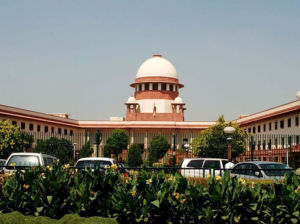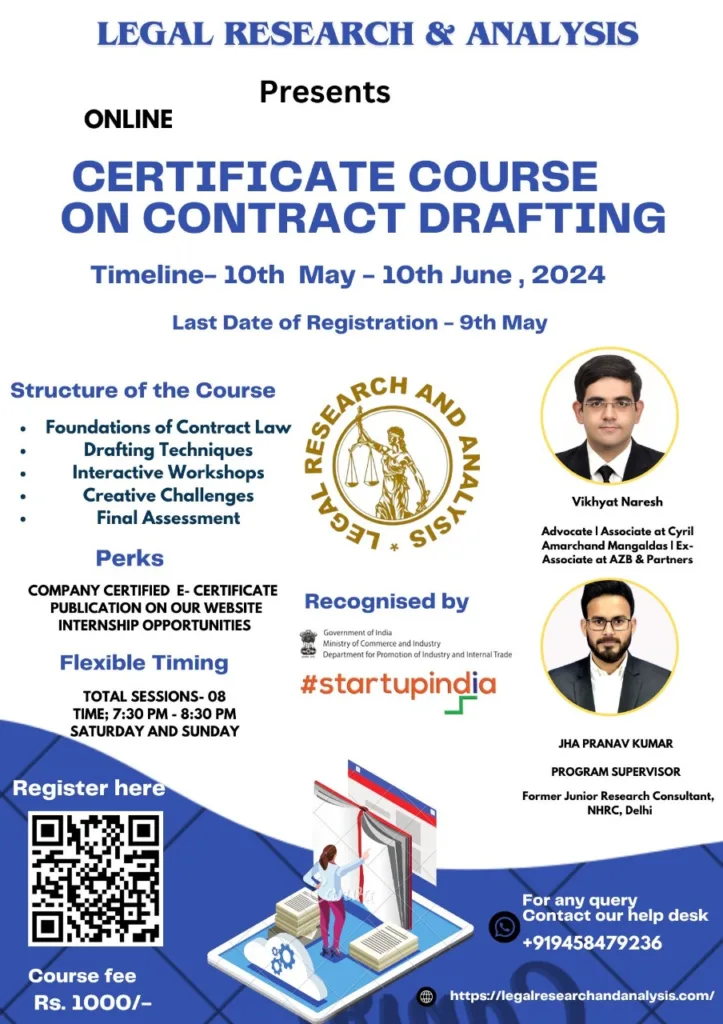
SUPREME COURT’S JUDGEMENT ON BORROWERS OF BANKS.
SBI v. Rajesh Agarwal
As soon as the judgement was passed by the Supreme Court of India concerning the matter of hearing chances to be given to the bank borrowers, it started gaining significance start from the very beginning.
While hearing the matter of State Bank of India, SBI v. Rajesh Agarwal, the Supreme Court decided that the borrower of the bank should be given the opportunity and chance of hearing before declaring their accounts as fraudulent.
The Supreme Court also noted then there can be chances of serious civil consequences due to the classification of accounts as being a fraud. It even amounts to blacklisting the borrowers. The supreme court further said that the borrowers must be heard under Master’s directions. Declaring any Account fraud causes severe civil consequences as set by the CGI.

The Supreme Court upheld the decision of 2020 held by the Telangana High Court, which was challenged by the Centre and said the borrowers must be given the opportunity of hearing before getting declared fraudulent under the Master circular of Reserve Bank of India, July 1, 2016.
The borrowers must be given a chance to explain a detailed reasoning for why any specific account has been declared a fraud. This recent judgement passed by the Supreme Court has diluted the 2016 RBI circular which set a benchmark of the process for the same.
WHY IS THIS CASE CONSIDERED TO HAVE SO FAR-REACHING CONSEQUENCES?
Will this judgement affect the past borrowers whose account has been declared as fraudulent?
Will it give the opportunity to the old Account borrowers to challenge the bank?
According to an advocate of the Supreme Court, HP Ranina, the Supreme Court of India believes in the natural form of justice provided to all its citizens.
The major fact that the account is overdue by more than 90 days, or the interest has not been paid doesn’t constitute fraud at all because fraud is something which is done in a wrong and deceiving way. Calling any account fraudulent based on these assumptions may be a travesty to justice.
The judgement is fair enough as it is going to reduce the number of cases registered as frauds and actual real fraud cases can be solved in the remaining time. The important bit is it will have a retrospective effect.
The matter concerning this judgement was first heard in the Telangana High Court and then passed on to the Supreme Court of India for further decisions. The reserve bank of India as well as the State bank of India has challenged the decision of the Supreme Court. In response to this, the banks said that day to investigate due diligence on the matter and keep and on the transactions from where earlier than the period of 90 days.

According to them did you give an apportion of 80 to the borrowers to present their explanation and if it is satisfactory enough by the banks, they do not declare it a fraud? According to the chief executive of IBA, the process of informing the borrowers was already there but a judicial process of giving them a show cause documenting the whole thing was still not provided to the borrowers.
The judgement serves as a welcome step, a sit mainly serves two purposes –
– First and foremost, the principle of natural justice is provided to all. – The second is chances provided to the borrowers of the banks to approach the court and describe their point of view.
The process can come to a lot of positive uses with just a simple modification of documentation of the entire process. Though the process has all the goodness there was still a lot of resistance shown in the court while the matter was going on.
The judgement basically relied on the principle of natural justice and includes Article 191g which is the right to do business.
Under the provisions of the Master Circular notice, it is required to be circulated among all the peripheral entities such as lawyers and chartered accountants who may have facilitated the loan. On this, the court asked that if the lawyers and CAs are supposed to have a prior notice so why cannot the borrows acquire the same?
The only possible drawback of judgement that can be thought of is, people, escaping together from our country and moving to foreign countries after doing blunders in fraudulent activities. Some famous names associated with this kind of fraud are Lalit Modi, Niro Modi and Vijay Mallya.
And the Indian Judiciary is far more efficient in doing something than when they escape the situation. So, the banks might argue on this point that proper and timely actions should be taken in even minor cases of fraud to avoid past happenings.







